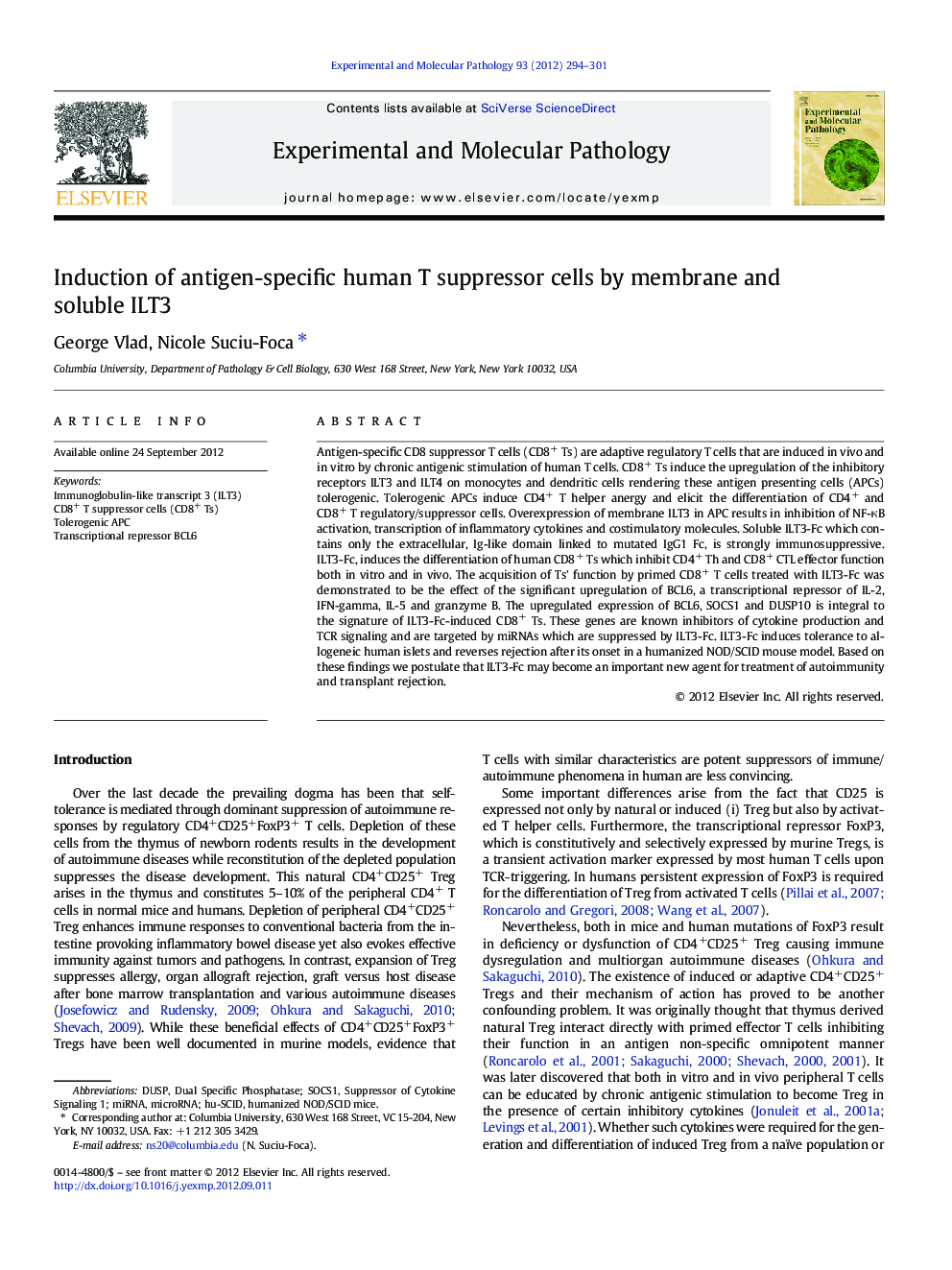| Article ID | Journal | Published Year | Pages | File Type |
|---|---|---|---|---|
| 2775169 | Experimental and Molecular Pathology | 2012 | 8 Pages |
Antigen-specific CD8 suppressor T cells (CD8+ Ts) are adaptive regulatory T cells that are induced in vivo and in vitro by chronic antigenic stimulation of human T cells. CD8+ Ts induce the upregulation of the inhibitory receptors ILT3 and ILT4 on monocytes and dendritic cells rendering these antigen presenting cells (APCs) tolerogenic. Tolerogenic APCs induce CD4+ T helper anergy and elicit the differentiation of CD4+ and CD8+ T regulatory/suppressor cells. Overexpression of membrane ILT3 in APC results in inhibition of NF-κB activation, transcription of inflammatory cytokines and costimulatory molecules. Soluble ILT3-Fc which contains only the extracellular, Ig-like domain linked to mutated IgG1 Fc, is strongly immunosuppressive. ILT3-Fc, induces the differentiation of human CD8+ Ts which inhibit CD4+ Th and CD8+ CTL effector function both in vitro and in vivo. The acquisition of Ts' function by primed CD8+ T cells treated with ILT3-Fc was demonstrated to be the effect of the significant upregulation of BCL6, a transcriptional repressor of IL-2, IFN-gamma, IL-5 and granzyme B. The upregulated expression of BCL6, SOCS1 and DUSP10 is integral to the signature of ILT3-Fc-induced CD8+ Ts. These genes are known inhibitors of cytokine production and TCR signaling and are targeted by miRNAs which are suppressed by ILT3-Fc. ILT3-Fc induces tolerance to allogeneic human islets and reverses rejection after its onset in a humanized NOD/SCID mouse model. Based on these findings we postulate that ILT3-Fc may become an important new agent for treatment of autoimmunity and transplant rejection.
